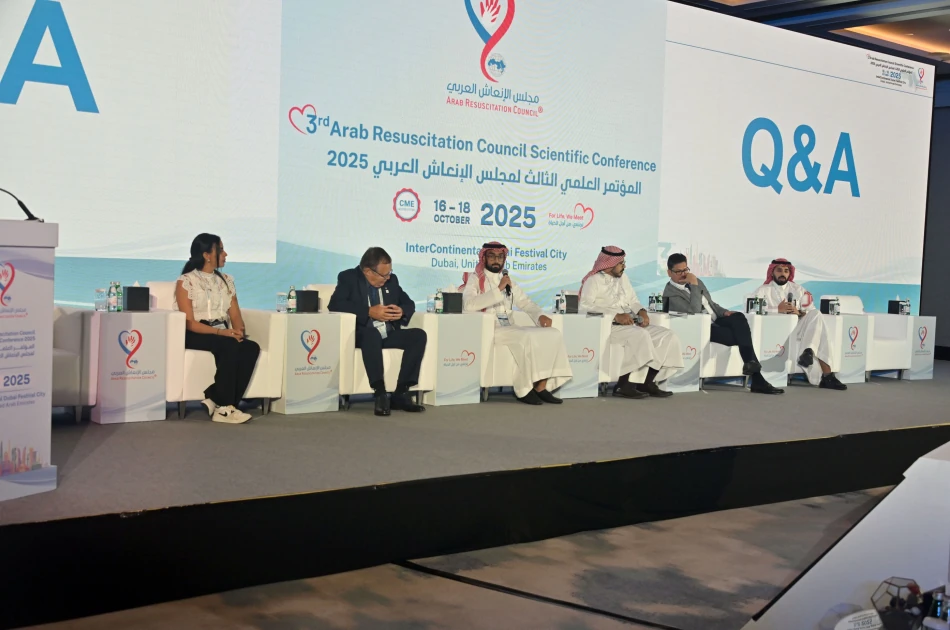
Dubai Arab Resuscitation Council Conference Showcases Latest Medical Research and Devices
Dubai is hosting the Third Arab Resuscitation Council Conference, bringing together healthcare specialists from across the Arab world to advance evidence-based emergency medical care. The three-day event focuses on improving life-saving skills through scientific training and research collaboration.
Dr. Ahmed Jabron, representing the Arab Resuscitation Council's executive and scientific committees, opened the conference by emphasizing the organization's commitment to spreading precise medical skills in resuscitation and first aid. The council prioritizes education and training based on proven scientific data.
The conference recognized Dubai Health Authority and the Community Development Authority for their ongoing support in promoting proper first aid and resuscitation practices. Both organizations have played key roles in backing scientific and training initiatives that enhance cardiopulmonary resuscitation skills.
Attendees are getting a look at the latest medical research, devices, and simulation products for resuscitation training. The event creates direct connections between manufacturers, researchers, decision-makers, and healthcare professionals to share knowledge and explore new teaching methods.
Here's where it gets interesting for the healthcare sector: this type of regional collaboration could standardize emergency care practices across Arab countries. Different nations often have varying protocols for emergency medical response, and events like this help align standards.
The conference serves a dual purpose - it strengthens cooperation among healthcare professionals throughout the Arab world while creating an environment for raising awareness about more effective first aid and cardiopulmonary resuscitation techniques. This matters because consistent, evidence-based emergency care can significantly improve survival rates during medical emergencies.
For healthcare systems in the region, the knowledge sharing and standardization efforts could lead to better emergency response protocols and training programs. The focus on simulation and hands-on training reflects a broader trend toward practical, skills-based medical education rather than purely theoretical approaches.
Most Viewed News

 Sara Khaled
Sara Khaled






